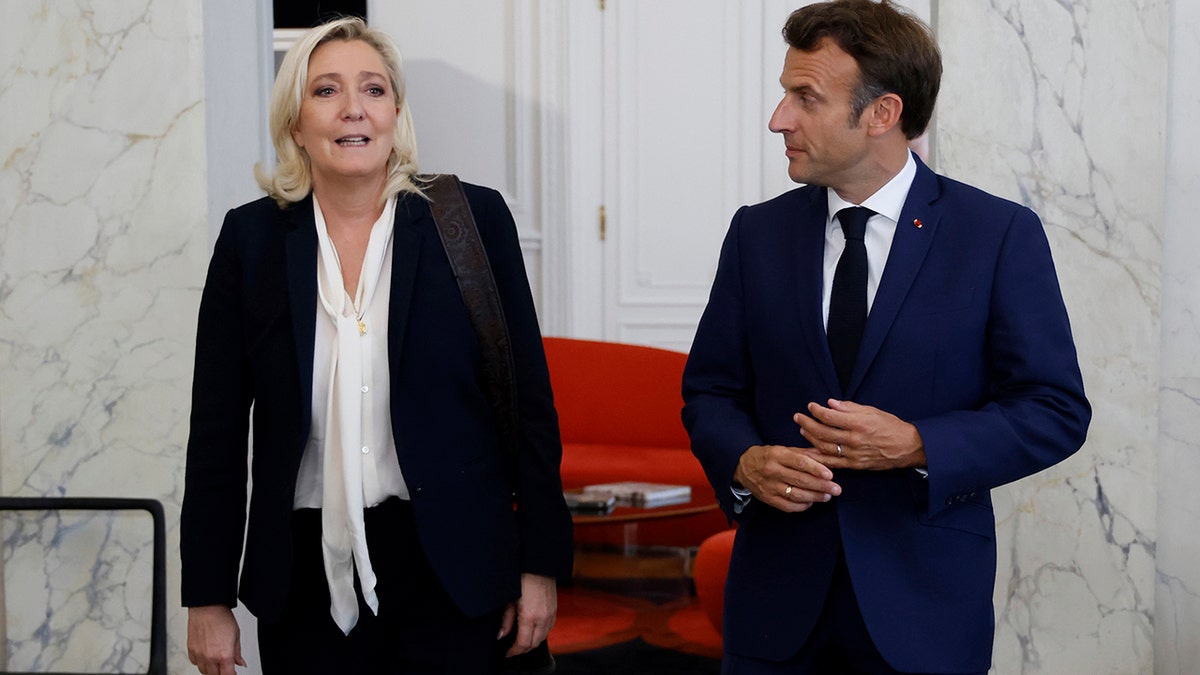INTERNACIONAL
¿Por qué es tan inusual el huracán Beryl?

El huracán Beryl, el primero de lo que promete ser una temporada extraordinaria en el Atlántico Norte, ya ha dejado asombrados a los científicos al aumentar de intensidad tan rápidamente y al hacerse muy potente tan pronto en el año.
A pesar de haber batido varios récords, también está demostrando ser el ejemplo perfecto de lo que los expertos predicen que será más probable como consecuencia del cambio climático. He aquí las principales características de este huracán y la causa principal de ellas: un océano mucho más cálido de lo normal.
Beryl se formó el viernes en el sureste de las Antillas y se convirtió pronto en un huracán de categoría 1 el sábado.
Su formación fue «mucho más al este del Atlántico de lo que es habitual en esta época del año», explica a la AFP Andra Garner, climatóloga de la Universidad de Rowan.
Este fenómeno está vinculado, según ella, a la temperatura actual del océano Atlántico, que no suele ser lo bastante cálida en estas zonas en esta época del año como para permitir la formación de una tormenta de este tipo.
«Nunca se había formado un huracán tan al este, tan temprano en el año», añade en su blog Brian McNoldy, investigador especializado en huracanes de la Universidad de Miami.
Un fenómeno sorprendente
El huracán Beryl se intensificó muy rápidamente, en menos de un día, hasta convertirse en un importante huracán de categoría 4.
«Es difícil expresar con palabras lo increíble que es esto», comenta Brian McNoldy.
Pero aunque sea «sorprendente ver este fenómeno ante nuestros ojos», también está «en línea con lo que la ciencia nos dice que podemos esperar de un mundo más cálido», señala Andra Garner, que ha publicado un estudio sobre esta llamativa intensificación.
«En los últimos 50 años, hemos comprobado que los huracanes tienen ahora más del doble de probabilidades de pasar de una tormenta relativamente débil -de categoría 1 o inferior- a un huracán mayor, de categoría 3 o superior, en el espacio de 24 horas», explica. «Eso es lo que hizo Beryl».
El primero en junio
Beryl pasó a categoría 4 el domingo, último día de junio. Nunca antes se había registrado un huracán de esta categoría en ese mes.
El lunes, alcanzó la categoría 5, la más alta, batiendo en dos semanas el récord del huracán de esta categoría más precoz de la temporada, según los expertos.
La temporada de huracanes se extiende desde principios de junio hasta finales de noviembre en el Atlántico Norte. Pero según la Administración Nacional Oceánica y Atmosférica estadounidense (NOAA), los primeros huracanes importantes (de categoría 3 o superior) suelen empezar a formarse a finales de agosto o principios de septiembre.
El mayor motivo de lo que vemos con Beryl es la temperatura de las aguas del océano Atlántico, que lleva más de un año a niveles récord.
 Un mercado en Kingston, Jamaica, preparado para la amenazante llegada del huracán Beryl. Foto: REUTERS
Un mercado en Kingston, Jamaica, preparado para la amenazante llegada del huracán Beryl. Foto: REUTERS
«Cuando nos levantamos por la mañana, tomamos una taza de café con cafeína para ponernos en marcha», compara Andra Garner. «Las aguas cálidas de un huracán son un poco como la cafeína de nuestro café, permiten que la tormenta se ponga en marcha y coja fuerza».
Las aguas del Atlántico Norte, así como las del Caribe y el Golfo de México, están actualmente entre 1°C y 3°C por encima de lo normal, según la NOAA. Las temperaturas de mayo ya se acercaban a las previstas para agosto.
Así pues, aunque Beryl «no tenga precedentes», «no puedo decir que sea inesperado desde un punto de vista científico», subraya la experta.
«Sabemos que cuando calentamos el planeta y los océanos, hacemos que este tipo de eventos sean más probables», añade, señalando a las emisiones humanas de gases de efecto invernadero. «Beryl es casi exactamente lo que esperamos desde el punto de vista de la climatología».
INTERNACIONAL
French election preview: Polls show right-wing party leads runoff as opponents urge tactical voting

France is set to elect the right-wing National Rally (RN) as the largest party in government, yet no party may emerge with a clear majority in this tightly contested election as the second round of voting kicks off this weekend.
The first round, which occurred June 30, resulted in just 76 of the 577 constituencies in the French National Assembly determining their representative. Any candidate who did not receive an outright majority in the first round of voting heads on to the second-round runoff, which is set for July 7.
Those few contests that concluded in the first round revealed a lot about voter sentiment and indicated trouble for the current government after RN took one-third of the vote, the most by any party.
The current government is an «ensemble,» a coalition of parties, including French President Emmanuel Macron’s Renaissance (RE), Democratic Movement, Horizons, En Commun and the Progressive federation. Despite the assembly election results, Macron will retain his mandate as president until the 2027 election.
FRANCE’S RIGHT-WING NATIONAL RALLY LOOKS TO SEIZE ON RECENT ELECTORAL GAINS
Macron called the snap election after RN scored enormous success in the European Parliamentary elections in June. Polling before the first round of voting indicated RN would continue to dominate, but more recent polling ahead of the runoff indicates those returns have diminished and RN will fall short of a clear majority.
Wednesday’s poll indicates RN will end up taking between 190 and 220 seats, but it would need 289 seats to control the assembly, according to Reuters. Additionally, its closest ally, the Republicans, are projected to win – at most – around 50 seats, ruling out some kind of right-wing coalition to take control of the assembly.
Supporters of French far-right leader Marine Le Pen react after the release of projections based on the actual vote count in select constituencies June 30, 2024, in Hénin-Beaumont, northern France. (AP/Thibault Camus)
The next largest share would go to the New Popular Front alliance, which could net between 159 and 183 seats, leaving Macron’s ensemble third with around 110 to 135 seats. Macron has already ruled out making a new alliance with the left-wing party France Unbowed (LFI), according to French daily Le Figaro.
Many candidates from Macron’s alliance who reached the runoff have already stood down in an effort to focus voters and support behind the strongest non-RN candidate in any given constituency. Former French Prime Minister Edouard Phillippe told French network TF1 TV he would vote for a Communist candidate to stop RN from winning the seat.
FRANCE’S GOVERNMENT SPOKESPERSON IS ATTACKED ON CAMPAIGN TRAIL, DAYS BEFORE DECISIVE ELECTION
Macron insisted, however, that «withdrawing today for left-wing elected officials in the face of National Rally does not mean governing tomorrow with LFI.»
French Prime Minister Gabriel Attal last month blasted LFI as equally extreme and just as dangerous to French society as RN, writing on social media platform X that «Insoumise France fuels the National Rally and the National Rally fuels Insoumise France.

French President Emmanuel Macron, right, meets French far-right National Rally leader Marine Le Pen at Élysée Palace June 21, 2022, in Paris. (Ludovic Marin/Pool/AP)
«They fuel hatred, fears and divisions between the French,» Attal added. «On June 30 and July 7, against the extremes and for the Republic, vote!»
Opposition to RN stems from its roots as National Front, headed up by Marine Le Pen’s father Jean-Marie Le Pen, who was repeatedly convicted for racist and antisemitic remarks, including elements of Holocaust denial, such as when he referred to Nazi gas chambers as a «detail» of history.
RIVALS MOVE TO BLOCK FRANCE’S RIGHT-WING NATIONAL PARTY’S ELECTION MOMENTUM
But Marine Le Pen has found support among some of France’s Jewish voters as antisemitism continues to grow in Europe.
Her anti-Islam views and comments, however, have raised concerns among other voters, as well. In 2017, she suggested France expel any foreigners convicted of a crime or suspected of being radicalized and said convicted extremists with dual nationality should be stripped of their French passports, Radio France Internationale reported.
«The measures that I want to put in place would mean that many of these people (Islamist attackers) would not have been on our territory or living freely,» she said in an interview with BFM TV.

French President Emmanuel Macron and French Prime Minister Gabriel Attal during the national tribute ceremony for former French Justice Minister Robert Badinter at Place Vendome Feb. 14, 2024, in Paris. (Christian Liewig/Corbis/Getty Images)
In the event the votes should fall as the polls predict, the most likely outcome for France will be a hung parliament with some kind of begrudging alliance created to get a leader in place. The Conservative Party in Britain regained power from Labour in 2010 through a hung parliament alliance with the Liberal-Democrats, ultimately establishing an outright majority in the following election.
But, at that time, the Conservatives had 306 of 650 seats, making it far easier to broker such a deal. For France, RN would need support from two other parties or would need to form some kind of alliance with a direct rival.
The government has urged voters to do what they can to continue diminishing RN’s chances of achieving control of the assembly, with Attal arguing voters had a «responsibility» to block RN from victory.
CLICK HERE TO GET THE FOX NEWS APP
«On Sunday evening, what’s at stake in the second round is to do everything so the extreme right does not have an absolute majority,» Attal said during an appearance on France Inter radio as reported by Voice of America.
«It is not nice for some French to have to block … by using a vote that they did not want to,» he added, clarifying that he «did not speak about a coalition. I do not want to impose on the French a coalition they did not choose.»
-
POLITICA2 días ago
Tras romper con Macri, Patricia Bullrich negó su salida del PRO: “Ni loca me voy, nos quedamos”
-
POLITICA2 días ago
Guillermo Francos dijo que Sergio Massa “trabaja para generar inestabilidad en el Gobierno”
-
POLITICA3 días ago
El Gobierno acusó a “operadores” por la suba del dólar blue y volvió a defender el plan económico
-
ECONOMIA1 día ago
La inflación de junio rondaría el 5,2% según los analistas consultados por el Banco Central
-
POLITICA19 horas ago
El Gobierno busca bajar la tensión con el PRO y dice que cumplirá el fallo por la coparticipación a la Ciudad que reclamó Macri
-
SOCIEDAD2 días ago
Caso Loan: Camila declaró por más de cinco horas y al salir pidió que encuentren al nene






























